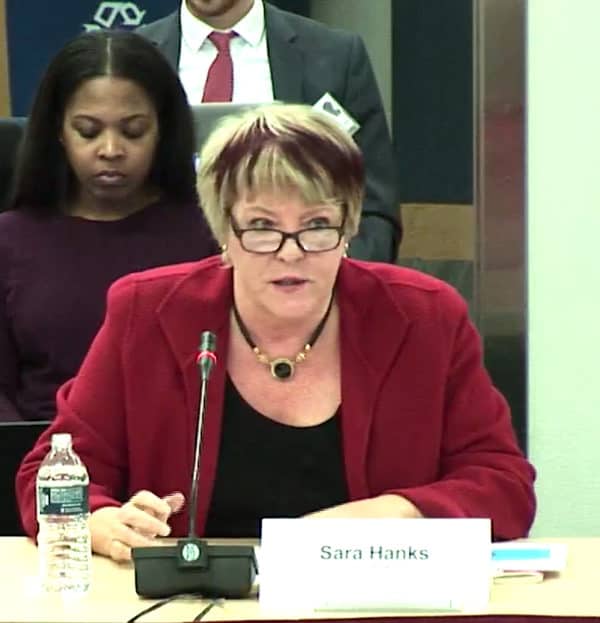
Last week, a meeting of the Securities and Exchange Commission (SEC) Investor Advisory Committee (IAC) held a meeting. On the agenda was the topic of the SEC’s concept release on regulatory harmonization.
The concept release was initiated in recognition of the current ecosystem of private securities which has evolved over time to create a convoluted and confusing amalgamation of rules and exemptions. It should be obvious to everyone that much can be improved.
The task to update and reform the securities exemption regime is monumental. If the Jay Clayton led Commission can improve the ecosystem it will be a huge accomplishment. Securities law is deeply embedded into capital markets and change is always hard but an important goal.
During the Investor Advisory Committee meeting, diverse viewpoints were shared with several panelists criticizing private markets and a relative push to make them more accessible. It is the Commission’s mission to improve both private and public markets while making them more accessible to a wider segment of both investors and issuers – while being safe and transparent.
Sara Hanks, a securities attorney, former SEC staffer and longtime advocate of online capital formation participated in the panel. She provided a much-needed boots on the ground perspective in contrast to some more academic opinions. Hanks, via her company Crowdcheck, is a leading legal services provider for exempt securities offerings like Reg A+ and Reg CF. At the end of last month, Hanks posted an extensive comment letter regarding the SEC concept release expressing her opinion as to what changes should be made.
Following the SEC IAC meeting, Crowdfund Insider caught up with Hanks to ask additional questions regarding her comments and perspective. Our discussion is shared below.
Recently you provided perspective on small companies and access to capital in the current securities exemption regime. What is the problem we are trying to solve here?
Sara Hanks: The issue the Concept Release is addressing is that there are now a number of different exemptions from registration for early-stage companies. Each of them has different conditions relating to who you can sell to, when you can start making offers, and similar matters. These can get confusing and increasingly hard for issuers to comply with. I’ve seen issuers get into trouble by following the rules for the wrong exemption, thinking that they were doing the right thing. So there has to be a way of harmonizing all these exemptions and creating a rational matrix of exemptions that make compliance easier.
You made the comment that “one size does not fit all” during a discussion regarding public vs. private markets. Please explain.
Sara Hanks: What I was trying to get at there was the fact that even when the same exemption is used, one issuer might have completely different objectives from another user, and so you can’t measure success by reference to the same metrics. In particular, with respect to Regulation A, some commentators look only at the companies that use Reg A to become traded companies, and look at their subsequent stock price, as opposed to looking at the number of companies who raise funds under Reg A and wish to remain non-traded. Some companies just don’t want a trading market for their shares yet.
How can private markets be improved?
Sara Hanks: Making compliance easier would be the biggest thing. Compliance with some of the exemptions is appalling. I’m not suggesting that we need to loosen the rules in general, just to make sure that issuers understand clearly what they are supposed to do and when. And I would like investors of modest means not to be completely excluded from the private markets, so long as someone is looking out for their interests. But to flip this question on its head, what would make the private markets “better” would be to make them smaller — improve the public markets so that companies leave the private markets earlier in their life cycle. Make it easier for companies to become and remain public companies.
You made the comment that it would be better to regulate at the sale of an exempt security. Can you elaborate on that idea?
Sara Hanks: We currently regulate both “offers” and sales of securities, and as I used to say when I taught securities law, “everything’s an offer.” That is, any statement which might “condition the market” for an offering. In many cases, when an offer is made, requirements such as the delivery of an offering document are triggered. If the offer is made through channels like TV or radio, or in print, delivery of an offering document is difficult. So it would be better to have these requirements triggered at the time of sale, when someone is actually in the process of giving the issuer money.
You defended Reg A+, a sector of online capital formation that you know well. Why is Reg A+ a good option for some issuers?
Sara Hanks: Regulation A isn’t a great option right now for companies who wish to get listed on a securities exchange, mostly for very technical reasons.
The ability for an investment bank or broker to “stabilize” the stock price and protect against short sellers is limited, especially when, as is typical under current conditions, Reg A offerings are made overtime on a “best efforts” basis. But I know several banks or brokers are looking at changing the process, so this may change in the near future. We don’t need rule changes for this to happen. But for companies who aren’t looking at listing in the near future, Reg A is a great option. It’s not difficult to comply with and the ongoing reporting requirements are not burdensome. I used to think it was a great option for all early-stage companies other than complete start-ups, but we work with a number of newly-formed companies who are very happy with the way Reg A worked out for them. That being said, the old adage “securities are sold and not bought” is still true, so you do need serious marketing efforts by brokers, a marketing specialist or your own customers or fans. We’ve seen a number of good companies withdraw their Reg A offerings because they couldn’t attract attention from the markets.

What about the criticism regarding issuers that used Reg A+ to raise capital, listed on an exchange but then performed poorly?
Sara Hanks: That’s really such a limited number of companies that I think we don’t have a meaningful dataset. I would suggest that we see what happens after banks and brokers address some of the structural issues and then re-assess the success of Reg A.
What are your expectations regarding regulatory harmonization and the outcome of the SEC concept release?
Sara Hanks: It will take far longer than any of us expect or hope!
This is a huge project the Commission is undertaking. The first step will be to redefine what it means to be “accredited,” and I wouldn’t expect to see a proposal on that before early in 2020.
Then of course, everyone will argue about the proposal, so there could be a reproposal, so we could be talking 2021 before that issue is settled. I hope I’m wrong, but so far being pessimistic on timing has generally been the right call.

